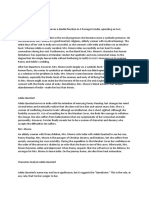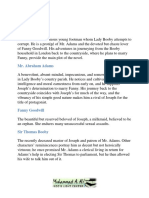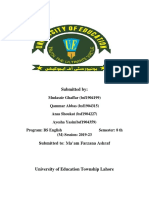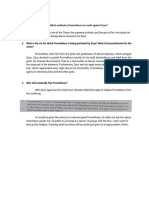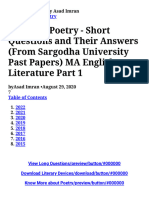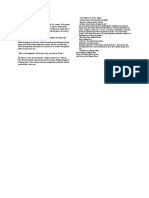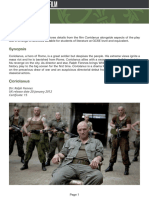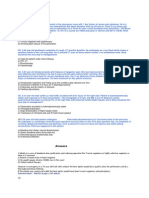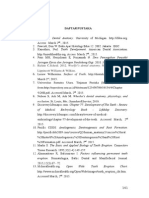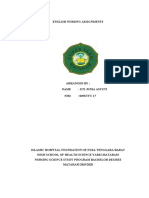0% found this document useful (0 votes)
370 views10 pagesGangrene
The poem tells the story of a 12-year-old boy who falls from a roof while flying a kite and injures his elbow. His parents take him to a local wrestler for treatment, but the wrestler misdiagnoses the injury. The wound develops gangrene but the wrestler refuses to acknowledge his mistake. When the boy's condition worsens, his parents take him to the city doctor recommended by the poet. The doctor diagnoses gangrene and says amputation is needed to save the boy's life. However, the boy's angry father refuses amputation, insisting the wrestler can treat his son. Against advice, they take the boy elsewhere, and he dies from the gangrene. The poem critiques the carelessness
Uploaded by
awtshfhdCopyright
© © All Rights Reserved
We take content rights seriously. If you suspect this is your content, claim it here.
Available Formats
Download as DOCX, PDF, TXT or read online on Scribd
0% found this document useful (0 votes)
370 views10 pagesGangrene
The poem tells the story of a 12-year-old boy who falls from a roof while flying a kite and injures his elbow. His parents take him to a local wrestler for treatment, but the wrestler misdiagnoses the injury. The wound develops gangrene but the wrestler refuses to acknowledge his mistake. When the boy's condition worsens, his parents take him to the city doctor recommended by the poet. The doctor diagnoses gangrene and says amputation is needed to save the boy's life. However, the boy's angry father refuses amputation, insisting the wrestler can treat his son. Against advice, they take the boy elsewhere, and he dies from the gangrene. The poem critiques the carelessness
Uploaded by
awtshfhdCopyright
© © All Rights Reserved
We take content rights seriously. If you suspect this is your content, claim it here.
Available Formats
Download as DOCX, PDF, TXT or read online on Scribd
/ 10








